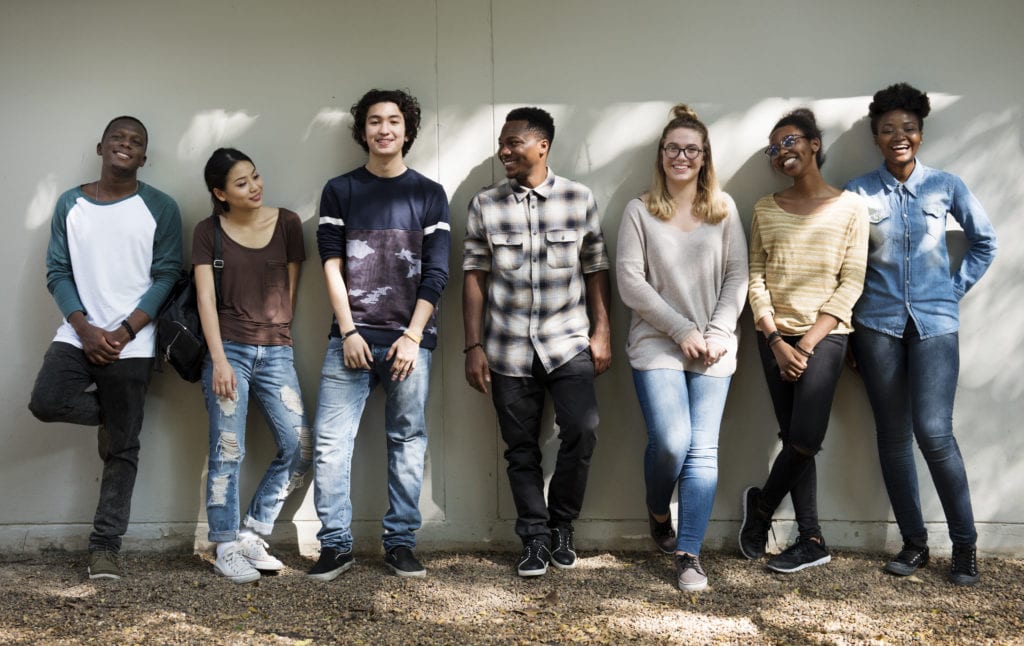

Noé Rubén Chávez, PhD, is an Assistant Professor at Charles R. Drew University of Medicine and Science, College of Science and Health, where he collaborates on research, teaching, and mentoring efforts at the university and within the local communities. As part of our second cohort of scholars from the Leaders in Equitable Evaluation and Diversity (LEEAD) program (an initiative of Change Matrix and the Annie E. Casey Foundation), Dr. Chávez supported our work with YMCA of San Diego County to evaluate the Connections 2020 initiative. In this blog post, Dr. Chávez reflects on his experience and offers insight into how to create individual and systems-level change to better serve youth from at-risk environments.
How can systems thinking equip us to understand the complex mental and behavioral health needs of youth? Traditionally, mental health systems and services have been dominated by a more individualistic and pathological focus common in the mental health field and clinical psychology. Through that lens, mental health needs are largely framed as being problems internal to a person. But now there are growing efforts to tip the balance toward a more contextual/community level and strengths/resilience focus.
Systems Thinking
Systems thinking is one approach that community psychologists and researchers are using to challenge our traditional thoughts about the roots of mental health issues. The roots of problems often exist within our systems—not just inside people—but these systems also reflect problems or limitations in our thinking. This kind of complexity calls for new frameworks to help us see other possibilities to better address mental health needs and strengthen the mental health system. Critical Systems Thinking (CST) helps evaluators recognize the relationships, diverse perspectives, and boundaries that influence how we design our systems and evaluations.
During my work with The Connections Project, a federal research demonstration project for the YMCA of San Diego County, I learned firsthand the importance of systems thinking and its real-world applications. For youth from at-risk environments, it meant engaging in the following activities:
- Peer-led outreach and recruitment
- Relationship wellness classes
- One-on-one coaching and case management
- Employment classes
- Peer monitoring opportunities
From a CST framework, Connections 2020 expanded the array of stakeholder relationships to include young adults that shared similar life challenges as the youth from at-risk environments to serve as peer coaches and behavioral health supports. It also examined the perspectives of youth to help evaluate the psychosocial services. And the concept of boundaries was illustrated by the decision-making processes on what values and activities/structure were critical to include in Connections.
Making Connections, Building Comprehensive Support
The Connections Project was designed with the purpose of strengthening relationship skills and interpersonal competencies for low-income marginalized youth, between the ages of 18-24. This relationship-focused approach promotes improved emotional regulation, social conduct, mindfulness, and impulse control in young adults. The Connections 2020 curriculum guiding the various program activities was based on the principles of Dialectical Behavior Therapy (DBT) and the Compassion, Awareness, Validation, and Empowerment (CAVE) approach developed by YMCA leadership. Although DBT stems from a more traditional psychotherapeutic perspective, which focuses on changing “ineffective behaviors” or negative symptoms and behaviors, the CAVE model refocuses the attention primarily from negative factors to positive ones or factors related to resilience and ensures that the relationship between worker and youth is at the foundation of the work.
This framework shift to the CAVE approach was an intentional action to improve service delivery and remove the worker’s personal bias so that they can more easily inject compassion for appreciating the challenges that San Diego county youth face, such as dropping out of school, foster care experiences, involvement in the juvenile justice system, homelessness, or teen pregnancy. It enabled a deeper awareness of one’s own emotions when working with youth along with being less judgmental and more effective. Through this approach, youths’ experiences were validated and the youth were empowered to have the freedom to choose their own right path, view their experiences more objectively, and to practice agency.
Changing Systems
Connections 2020 is contributing to the growing efforts in refocusing our attention to strengths and resilience in improving mental health systems. The CAVE model is an approach to include more resiliency related principles in training and supporting the staff in improving their thinking and own emotional balance, which guides how they relate to and support youth from at-risk environments. The young adults serving as peer coaches for the youth break traditional boundaries by fostering culturally responsive interactions that come not from traditional mental health providers but from young adults that the youth can better identify and relate to, which leads to stronger relationships. Sustaining these connections transforms all stakeholders involved—changing the mindsets of stakeholders then enables systems change.
For the YMCA, approaching the broad topic of social wellness with intellectual curiosity aids in their pursuit of identifying new opportunities to support youth well-being. By placing CAVE at the center of delivery of services, Connections 2020 is creating a relationally focused culture of diversity and inclusion that provides just that.
